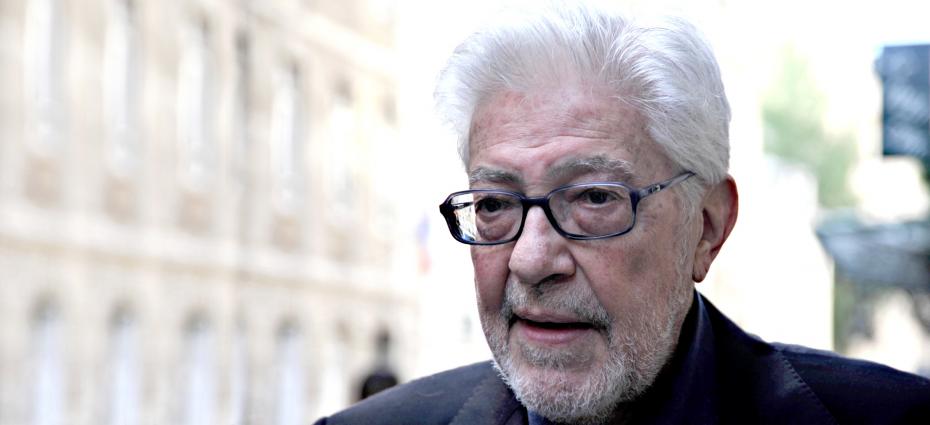The 11th edition of the Los Angeles, Italia. Film, Fashion and Art Fest, held at the TCL Chinese Theatres, on the pre-Oscars week, from February 21 to 27, channeled its efforts in celebrating two Italian legends.
The first, Italian composer, Ennio Morricone (Rome, November 10, 1928), was honored with the screening of four cinematic milestones, featuring his musical score.
Ennio, who has been recipient of almost every existent awards, was just awarded the cherry on top, the Academy Award for Best Original Score, for Q. Tarantino’s The Hateful Eight. For the sake of not straying from the pastry-making vocabulary, a sumptuous frosting was not neglected to Morricone, who received a star on the Hollywood Walk of Fame, on February 26.
The second, late lamented filmmaker, Ettore Scola (Trevico, in the province of Avellino, Campania, May 10, 1931 – January 19, 2016), was remembered with a special retrospective.
The festival’s opening film was the Golden Globe winner, A Special Day (Una giornata particolare, 1977), a politically engaged dramatic masterpiece. The other two screenings, under the documentary category, were: How Strange to Be Named Federico (Che strano chiamarsi Federico, 2013), last work directed by Scola, as an homage to Italian legendary filmmaker, Federico Fellini; Ridendo e Scherzando: A Portrait of an “Italian-Style” Director (2015), a bittersweet profile of the maestro, directed by Scola’s daughters, Paola and Silvia.
To consider Ettore Scola just a filmmaker is an oversimplification. At 15, he started drawing comic strips for Roman satirical publications, Marc’Aurelio and Il Travaso delle Idee. In 1950’s, he debuted as screenwriter for Italian-Style Comedies, often collaborating with colleague, Ruggero Maccari. In 1964, Ettore directed his first feature film, Let’s Talk About Women (Se permettete parliamo di donne), made of nine segments, starring Vittorio Gassman, as the male lead. In 1968, Scola garnered his first hit, with the comedy, Will Our Heroes Be Able to Find Their Friend Who Has Mysteriously Disappeared in Africa? (Riusciranno i nostri eroi a ritrovare l’amico misteriosamente scomparso in Africa?). The film marked also Ettore’s first collaboration with actor, Alberto Sordi. In 1974, the filmmaker authored his masterpiece, We All Loved Each Other So Much (C’eravamo tanto amati), which spans thirty years of Italian history and pays homage to several movie genres.
Another remarkable example of historical fresco is represented by The Family (La famiglia, 1987), which follows an Italian bourgeois household, over eighty years of history.With the turn of the 21st century, Scola began focusing exclusively on documentaries, or mockumentary, as in the case of Gente di Roma (2003).
My scope here is not to chronicle Scola’s outstanding career, but to offer you a heartfelt glimpse about the extraordinary intellectual, humorist, historian, in a word “conscience” of our country, whom I had the privilege and honor to meet in person.
The first time I met the maestro, was a fine evening on June 2006. Ettore was among the spectators of our year’s final stage performance, at the prestigious Roman Acting School “Teatro Azione”. Do you think Scola was there to scout for new talent? Sorry to say, but you’re wrong.
Ettore attended the show to watch his grandson on stage. However, the latter happened to be my partner in one of the comedic sketches.
At the end of the play, Scola approached me and complimented me on my comic acting. I was paralyzed and unable to react for a little while. That praise came from someone, who surely knew a thing or two about comedy! The second time I had the chance to talk one-to-one with the filmmaker, was in the summer of 2012. I had just graduated from my Bachelor degree and I was desperately seeking some words of wisdom on where to better complete my formation.
Through the kind intercession of Ettore’s grandson, I was received by the maestro, in his apartment, located in “Parioli”, a neighborhood in the north of Rome. I asked Scola to give me some feedback on my early attempt of short film’s screenplay, before submitting it, as part of my application, to several film schools. As he was reading it intently, my heart was beating hard. Then, he lifted his eyes and assumed a benevolent look. The story is very “tender.” At that point, I was waiting for the inevitable “but”, which, in fact, came shortly afterwards.
I received, then, my first free screenwriting lesson: the characters, especially the protagonist, need to face some obstacles, or better “conflict”, in the pursuit of their goals. I thanked him about his evaluation and admitted my indecision about where to enroll. I was divided in my mind about Master programs in Screenwriting, offered by a couple of institutions, respectively in London and Paris, alongside a pair of alternatives in the States.
He, then, made a slightly disappointed face, and remarked how Italy offered formative opportunities, worth to consider. Above all, the newly inaugurated, public and cost-free, School of Cinematic Art “Gian Maria Volonté”, launched by the Province of Rome, in 2011, with the encouragement of Scola himself.
Luckily, I didn’t follow my first impulse to snap back that I wanted to flee from my home country, for its widespread nepotism and lack of meritocracy.
Despite I didn’t follow the maestro’s advice and, at last, I moved to the US, I fully endorse his vision of a new generation of Italian talent, with free and open access to resources, in order to realize their dreams.





























